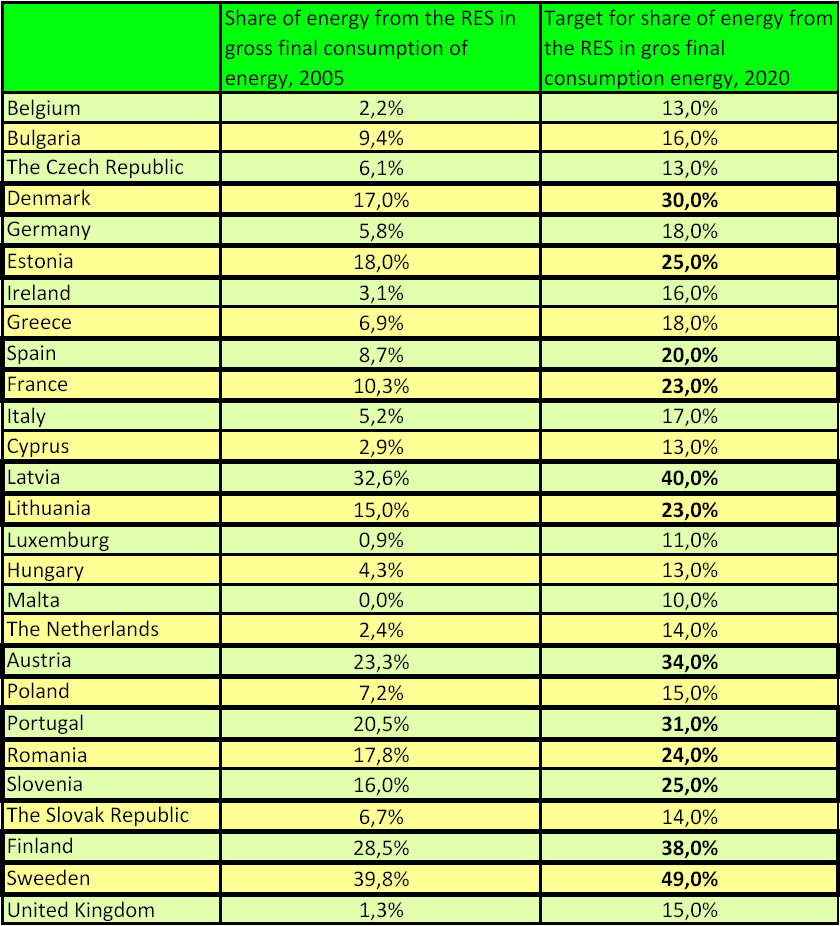
Aims of European Union policy
Law regulation is the one of tools which the EU use to achieve their energetic targets. Major aims of the EU in energetic sector are to increase share of the RES in energy production, to increase efficiency of energy production, transmission, consumption and to reduce the CO2 emission. For the nearest future (to 2020) the EU commission want to achieve following targets: an efficient use of energy that translates into 20% saving, ensuring the free movement of energy, ensure secure, safe and affordable energy for citizens and businesses, to make a technological shift and to create strong international partnership, notably with our neighbours. [53] To achieve above mentioned goals the EU supports the RES technology development however due to many barriers which prevent from sustainable some of technologies. Depends from country it can by technological barriers (solar systems which are located on far north are less efficient like e.g. in Spain or Italy), financial barriers (problems with access to financial resources) or legislation (like in Poland where unstable law impede investors to introduce the RES projects). Directive 2009/28/EC introduced minimal share of the RES which must be achieved to the 2020 in all Member States. However currently it is certain that some countries like German already met that obligation and some countries like Poland will not met it to deadline. Following figure shows state in 2005 and estimated value of the RES energy consumption in 2020 in each of Member State: (Fig. 54) [53]

-
Description of technology|
Economic aspects|
Environment and public awareness|
Legislation|
Final comparison|
References

